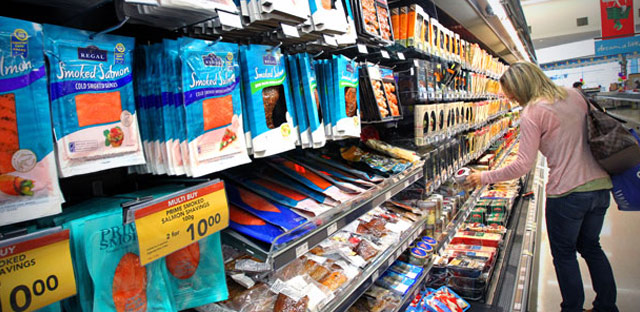Before you move to a new country, it’s good to get an idea of how general costs compare to what you currently spend. We uncover some of the common costs and expenses below to get you started.
Before you move to a new country, it’s good to get an idea of how general costs compare to what you currently spend. It can be difficult to work out the price comparisons between the United Kingdom or South Africa and New Zealand when taking into account fluctuating currency conversions and varying salary levels. As exchange rates can change without notice, it is important to stay up to date with current rates while planning your move.
Salaries
Comparative salaries will differ depending on the industry in which you work. While New Zealand is not known for particularly high salaries, many companies offer non-monetary benefits, such as extra holiday allotment, use of a company car or phone, or free drinks to sweeten a salary package. Some migrants find they get up to a third less pay for the same job, while others in high-demand jobs such as IT can find the pay structure is better. Government statistics show that the average Kiwi salary is $45k per annum, though this range is not indicative of skilled occupations, which command much higher salaries.
The top five earning New Zealand industries (including self-employment) are:
- Mining
- Electricity, gas and water supply
- Finance and insurance
- Government administration and defence
Wholesale trade:
- Accommodation, cafés and restaurants
- Agriculture, forestry and fishing
- Retail trade
- Personal and other services
- Cultural and recreational services
House Prices
House prices and rentals vary around the country. In Auckland, where purchase prices and rent are the highest in the country, expect to pay over NZ$500k for a house in most areas, or rent for around an average of NZ$400 per week for a two-three bedroom home or apartment. It is generally less expensive to rent and buy in the South Island and in provincial areas.
Vehicles
Petrol is around a third cheaper than it is in the UK, and has fluctuated in the past year between NZ$1.40 and NZ$2.00. It is easy to pick up a good-quality second-hand car cheaply as New Zealand imports many cars from Japan, which keep the prices down. European cars tend to be more expensive.
Phone and internet
The costs of phone or internet are comparable to the UK and South Africa, though mobile phone charges are often higher. While internet costs are comparable, the connection speeds may not be as fast. New Zealand is undergoing a major reformation in its telecommunications industry, with the National government spending upwards of NZ$1.5 billion to bring high-speed broadband access to over 75% of New Zealand homes.
Healthcare
Free healthcare in New Zealand is available for children under the age of six, and subsidised healthcare for those under age 18 and over age 65. Depending on your doctor’s level of government funding, you can expect to pay anywhere for NZ$10 to NZ$60 for a doctor’s visit. Private health insurance can be a good option to subsidise medical costs and expedite treatment.
Insurance
Moving to a new country can be very expensive, and you’ll want to ensure that you aren’t hit with sudden, unexpected costs during or after your move. Once you’re in New Zealand, you’ll be able to ensure everything from your home and contents to your car, health, life and income. During the move and in the initial months after, the safest thing you can do is protect your family with emigration insurance. Sort your insurance now.
Fresh produce
Fruit and vegetables can vary widely in price, depending mainly on seasonality and location. Produce in season is significantly cheaper than in the UK, though generally grocery costs have risen sharply since 2007. Purchasing a tomato in the middle of winter can be an expensive exercise, moving from the low price of a few dollars per kilo in summer to over NZ$10 per kilo in winter. Read ‘Buying food in New Zealand’ for more information.
Movies
Movies cost anywhere between NZ$10 to NZ$16 per person, depending on the day or session time. Some luxury theatres in New Zealand offer premium seating options that can cost up to NZ$40 per ticket.
Eating out
It is relatively easy to eat out inexpensively, and takeaways such as fish and chips or pizza tend to be a lot cheaper than their UK counterparts. However, convenience food at supermarkets can be slightly more expensive. Tipping in restaurants is not expected, though most restaurants will charge a 25% gratuity on public holidays. Read ‘Dining out in New Zealand’ for more information.

